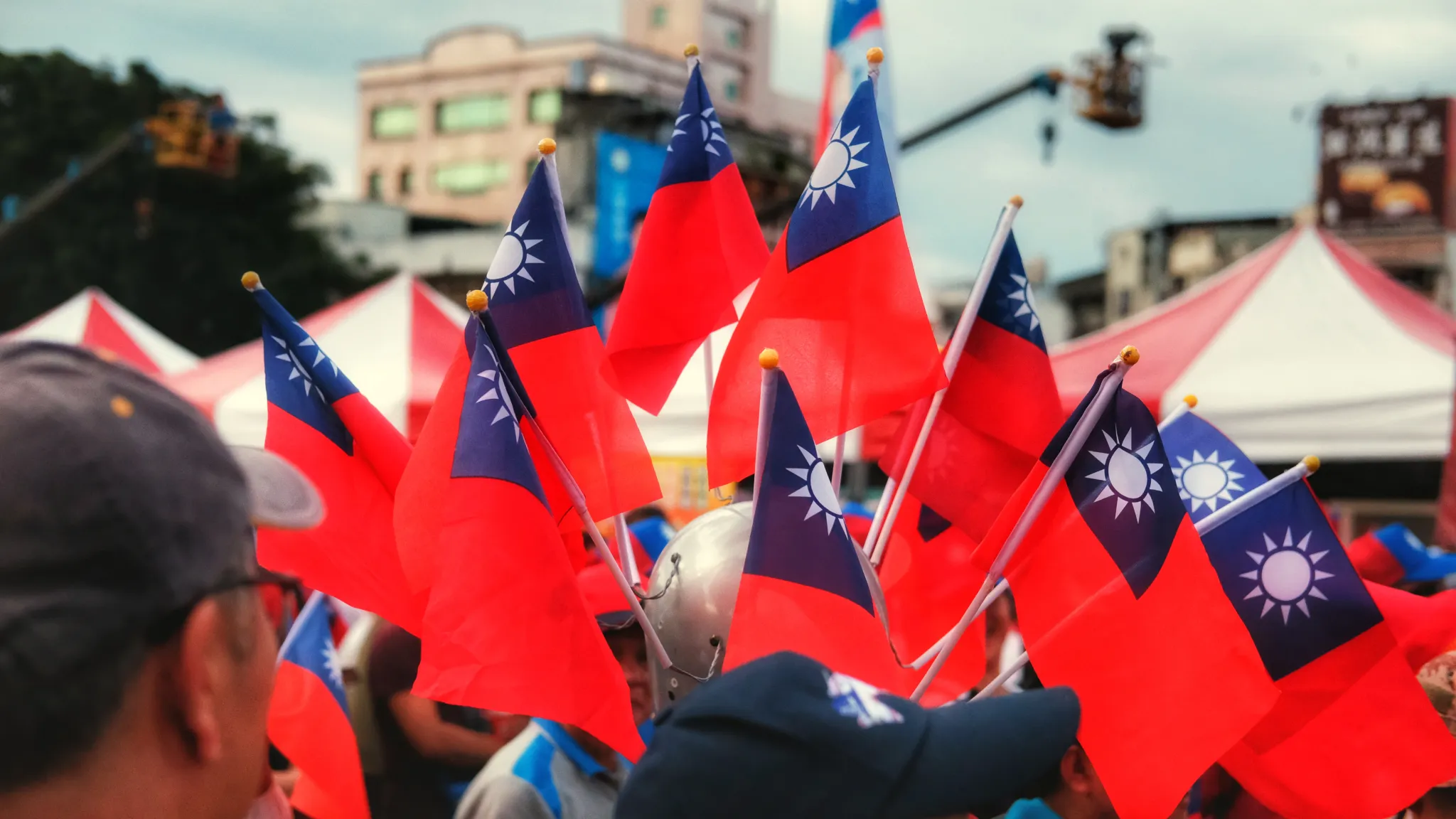
Why did the January 2024 Taiwan election catch the world’s attention? Taiwan holds a unique position in the international system that its sovereignty is not recognized internationally due to China’s proclaim that Taiwan is an integral part of it. Therefore, the election in Taiwan not only affects its domestic governance but may also alter the status quo of cross-strait relations, further impacting regional stability.
Overview
In the 2024 Taiwan election, three political parties, the Democratic Progressive Party’s (DPP), the Kuomintang (KMT) , and the Taiwan People's Party (TPP) competed for the presidency. With 40.05% share of the vote, the DPP pair Lai Ching-teh (the former vice president) and Hsiao Bi-khim (former Taiwanese representative to the United States) won the election. Nevertheless, none of the political parties were able to obtain more than 57 of the seats and become the majority in the Legislative Yuan. Currently, the KMT is the largest party in the parliament with 52 seats, followed by DPP with 51 seats. The newly established party, Taiwan People's Party won 8 seats in the parliament, and became a key force in the parliament.This inconsistency between the legislative and executive branches created challenges for the DPP. Moreover, the imbalance of the Legislative Yuan has created a gridlock, undermining democratic governance.
History of Taiwan Democracy
Taiwan has come a long way on its democratic journey. Today, the country exhibits top performances across all four GSoD indices, but for 38 years, the island was under martial law, restricting freedom of expression and political participation under KMT’s authoritarian rule. It wasn't until 1987 that martial law was lifted after persistent student movements and civil society advocacy for reform. This opened the door for new political parties like the DPP to emerge, providing a platform for diverse political views. Since Taiwan’s first direct presidential election in 1996, the KMT and DPP have dominated the political scene. While the KMT is often seen as more pro-China, the DPP is more aligned with pro-independence sentiments. Tensions between Taiwan and China have escalated, especially after DPP’s Tsai Ing-wen assumed the presidency in 2016, causing many to fear potential conflict in the Taiwan Strait. Hence, the 2024 election garnered global attention, as many wondered if a KMT win might ease these tensions.
Post-election Controversies
Following the election, Taiwan’s political landscape grew even more contentious. On May 21, thousands of young protestors gathered on the Qingdao East Road in Taipei City to voice their opposition to various bills that KMT and TPP intended to fast track. This movement is later named as the “Bluebird Movement” (青鳥運動)to symbolizes gentleness, hope, freedom, and justice.
The protests stemmed from deep frustration over parliamentary reform. Earlier in the year, the KMT and TPP used their combined majority to bypass normal legal procedures, speeding controversial bills through the legislature. There was a lack of transparency, with rushed processes that sidestepped thorough reviews and public input. This led to physical altercations among legislators, leaving some injured.
Consequently, three hundred students and members of the public spontaneously gathered and protested, demanding a halt to the voting process and calling for substantive scrutiny, chanting slogans "No discussion, no democracy" . In response, the police used barricades to maintain order and that the crowd gradually dispersed around midnight but is scheduled to gather again on the 21st when the bill resumes for scrutiny.
On May 21, civic society got permission to rally. Despite the rain, people from all walks of life spontaneously joined the protest in the evening. The organizers estimated that there were about 30,000 people presented and the protest lasted until the next morning. On May 24, another protest was organized and the numbers of people presented exceeded over 100,000 people. Several protests were held subsequently and civil society began to host press conferences to demand the government to take action and stop the legislation. In response, the government responded by requesting the reconsideration of the controversial bills, but on June 21, the motion was rejected due to the KMT and TPP’s majority. The DPP then petitioned the Constitutional Court to determine whether the bills were constitutional. Taiwan is now waiting on the court’s ruling to be released in November, and if the public is dissatisfied with the outcome, more protests could erupt. The development is worth attention because the result represents the democratic decision on Taiwanese governance. If the court fails to satisfy the public, further protests are anticipated.
Diverse Public Opinion
The varied public sentiment on the legislative protests in Taiwan illustrates a multifaceted political landscape, influenced by age disparities, historical resentments, and divergent perspectives on Taiwan's government and democracy. Older generations, especially those who participated in the Sunflower Movement of 2014, express disillusionment towards individuals such as Huang Kuo-Chang, whom they perceive as having betrayed the social movement by collaborating with established parties like the KMT. Concurrently, younger people, perceiving the Democratic Progressive Party (DPP) as the establishment, have aligned themselves with the People's Party (PPP), indicating a transformation in political loyalty. This generational and ideological divide underscores the profound connection between Taiwan's democratic system and public mood. Moreover, the protests may strain executive-parliamentary ties and alter Taiwan’s political landscape, as they encompass controversial subjects such as cross-strait policy and legislative openness. If protests of this nature stimulate wider civic participation, they may significantly contribute to Taiwan's democratic evolution by highlighting the necessity for enhanced procedural equity and attentiveness to varied public issues. This merits consideration because it may affect Taiwan's ability to manage internal political strife and external pressures from China, reinforcing the importance of civic activity in the country's democratic development.
Democracy at a Pivotal Moment
The 2024 Taiwan election has far-reaching implications beyond just domestic politics. It holds the potential to redefine Taiwan's democratic governance and alter its relationship with China, a critical issue for regional stability. The post-election controversies, protests, and divided public opinion underscore the challenges facing Taiwan’s democracy. How Taiwan navigates these internal struggles while balancing external pressures will be key in shaping its future. With public sentiment highly engaged and civic participation growing, Taiwan’s democratic evolution is at a pivotal moment, making this election one that the world cannot afford to ignore.
In the 2024 Taiwan election, three political parties, the Democratic Progressive Party’s (DPP), the Kuomintang (KMT) , and the Taiwan People's Party (TPP) competed for the presidency. With 40.05% share of the vote, the DPP pair Lai Ching-teh (the former vice president) and Hsiao Bi-khim (former Taiwanese representative to the United States) won the election. Nevertheless, none of the political parties were able to obtain more than 57 of the seats and become the majority in the Legislative Yuan. Currently, the KMT is the largest party in the parliament with 52 seats, followed by DPP with 51 seats. The newly established party, Taiwan People's Party won 8 seats in the parliament, and became a key force in the parliament.This inconsistency between the legislative and executive branches created challenges for the DPP. Moreover, the imbalance of the Legislative Yuan has created a gridlock, undermining democratic governance.
History of Taiwan Democracy
Taiwan has come a long way on its democratic journey. Today, the country exhibits top performances across all four GSoD indices, but for 38 years, the island was under martial law, restricting freedom of expression and political participation under KMT’s authoritarian rule. It wasn't until 1987 that martial law was lifted after persistent student movements and civil society advocacy for reform. This opened the door for new political parties like the DPP to emerge, providing a platform for diverse political views. Since Taiwan’s first direct presidential election in 1996, the KMT and DPP have dominated the political scene. While the KMT is often seen as more pro-China, the DPP is more aligned with pro-independence sentiments. Tensions between Taiwan and China have escalated, especially after DPP’s Tsai Ing-wen assumed the presidency in 2016, causing many to fear potential conflict in the Taiwan Strait. Hence, the 2024 election garnered global attention, as many wondered if a KMT win might ease these tensions.
Post-election Controversies
Following the election, Taiwan’s political landscape grew even more contentious. On May 21, thousands of young protestors gathered on the Qingdao East Road in Taipei City to voice their opposition to various bills that KMT and TPP intended to fast track. This movement is later named as the “Bluebird Movement” (青鳥運動)to symbolizes gentleness, hope, freedom, and justice.
The protests stemmed from deep frustration over parliamentary reform. Earlier in the year, the KMT and TPP used their combined majority to bypass normal legal procedures, speeding controversial bills through the legislature. There was a lack of transparency, with rushed processes that sidestepped thorough reviews and public input. This led to physical altercations among legislators, leaving some injured.
Consequently, three hundred students and members of the public spontaneously gathered and protested, demanding a halt to the voting process and calling for substantive scrutiny, chanting slogans "No discussion, no democracy" . In response, the police used barricades to maintain order and that the crowd gradually dispersed around midnight but is scheduled to gather again on the 21st when the bill resumes for scrutiny.
On May 21, civic society got permission to rally. Despite the rain, people from all walks of life spontaneously joined the protest in the evening. The organizers estimated that there were about 30,000 people presented and the protest lasted until the next morning. On May 24, another protest was organized and the numbers of people presented exceeded over 100,000 people. Several protests were held subsequently and civil society began to host press conferences to demand the government to take action and stop the legislation. In response, the government responded by requesting the reconsideration of the controversial bills, but on June 21, the motion was rejected due to the KMT and TPP’s majority. The DPP then petitioned the Constitutional Court to determine whether the bills were constitutional. Taiwan is now waiting on the court’s ruling to be released in November, and if the public is dissatisfied with the outcome, more protests could erupt. The development is worth attention because the result represents the democratic decision on Taiwanese governance. If the court fails to satisfy the public, further protests are anticipated.
Diverse Public Opinion
The varied public sentiment on the legislative protests in Taiwan illustrates a multifaceted political landscape, influenced by age disparities, historical resentments, and divergent perspectives on Taiwan's government and democracy. Older generations, especially those who participated in the Sunflower Movement of 2014, express disillusionment towards individuals such as Huang Kuo-Chang, whom they perceive as having betrayed the social movement by collaborating with established parties like the KMT. Concurrently, younger people, perceiving the Democratic Progressive Party (DPP) as the establishment, have aligned themselves with the People's Party (PPP), indicating a transformation in political loyalty. This generational and ideological divide underscores the profound connection between Taiwan's democratic system and public mood. Moreover, the protests may strain executive-parliamentary ties and alter Taiwan’s political landscape, as they encompass controversial subjects such as cross-strait policy and legislative openness. If protests of this nature stimulate wider civic participation, they may significantly contribute to Taiwan's democratic evolution by highlighting the necessity for enhanced procedural equity and attentiveness to varied public issues. This merits consideration because it may affect Taiwan's ability to manage internal political strife and external pressures from China, reinforcing the importance of civic activity in the country's democratic development.
Democracy at a Pivotal Moment
The 2024 Taiwan election has far-reaching implications beyond just domestic politics. It holds the potential to redefine Taiwan's democratic governance and alter its relationship with China, a critical issue for regional stability. The post-election controversies, protests, and divided public opinion underscore the challenges facing Taiwan’s democracy. How Taiwan navigates these internal struggles while balancing external pressures will be key in shaping its future. With public sentiment highly engaged and civic participation growing, Taiwan’s democratic evolution is at a pivotal moment, making this election one that the world cannot afford to ignore.





